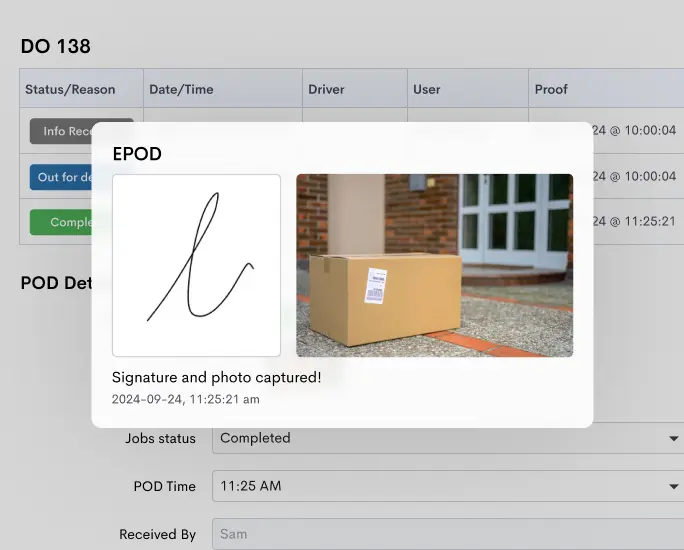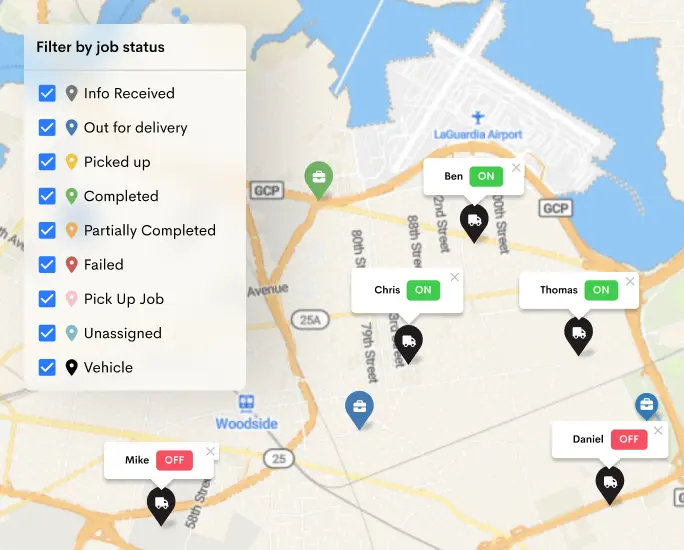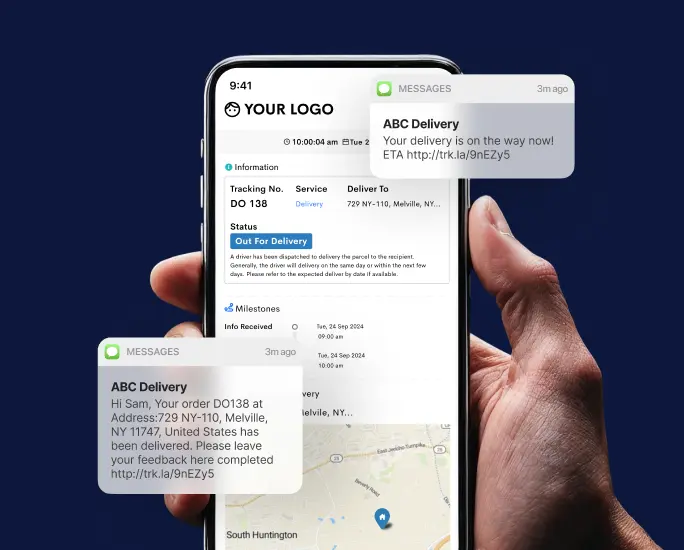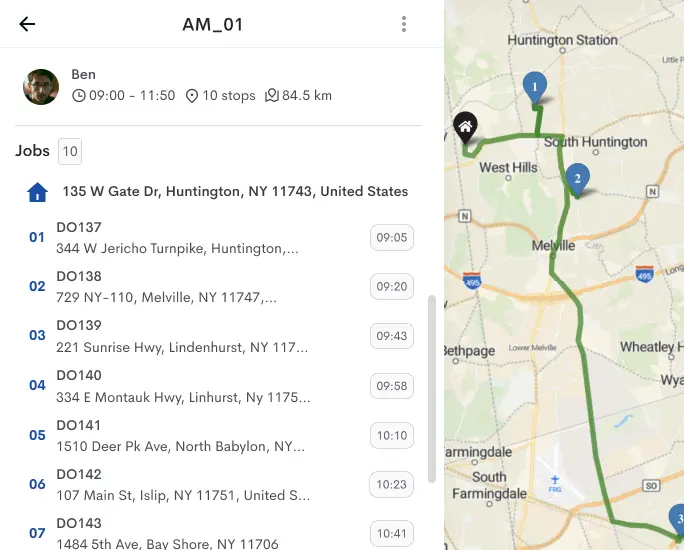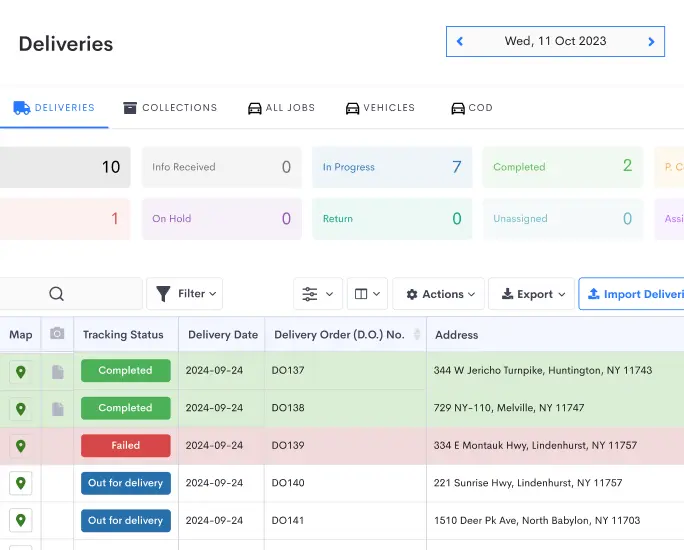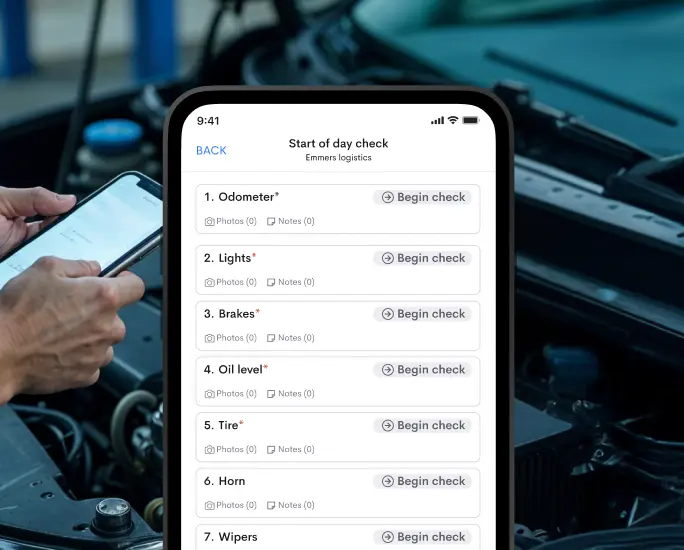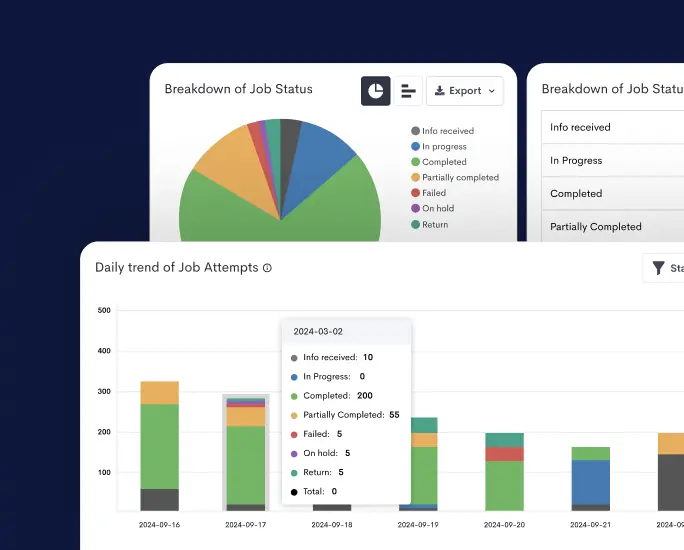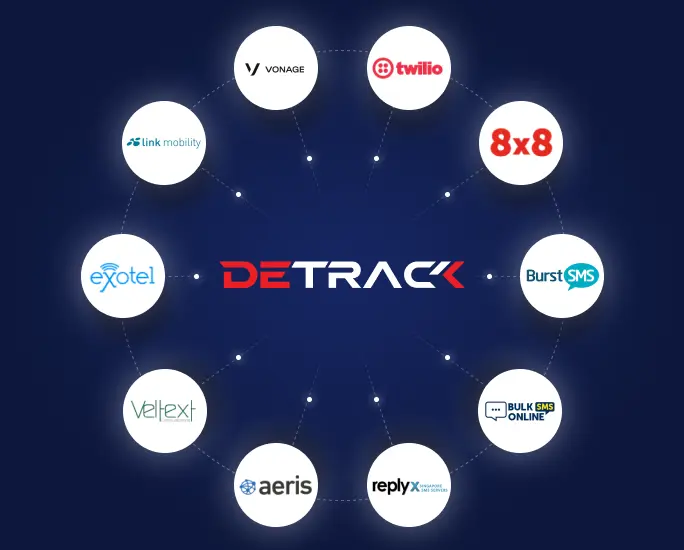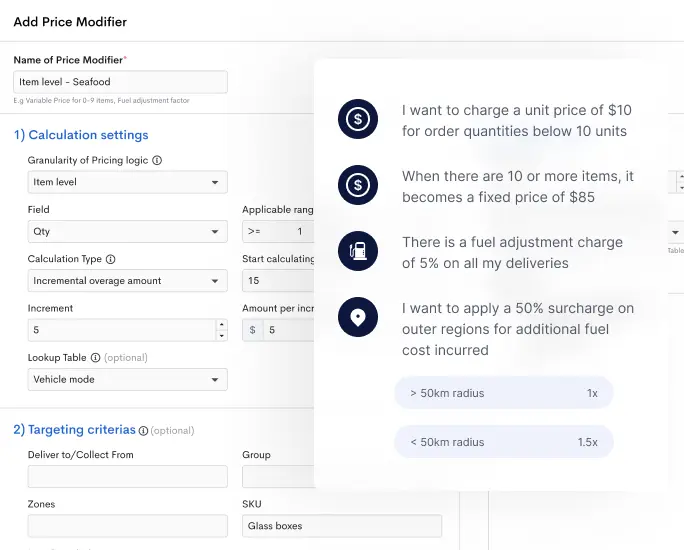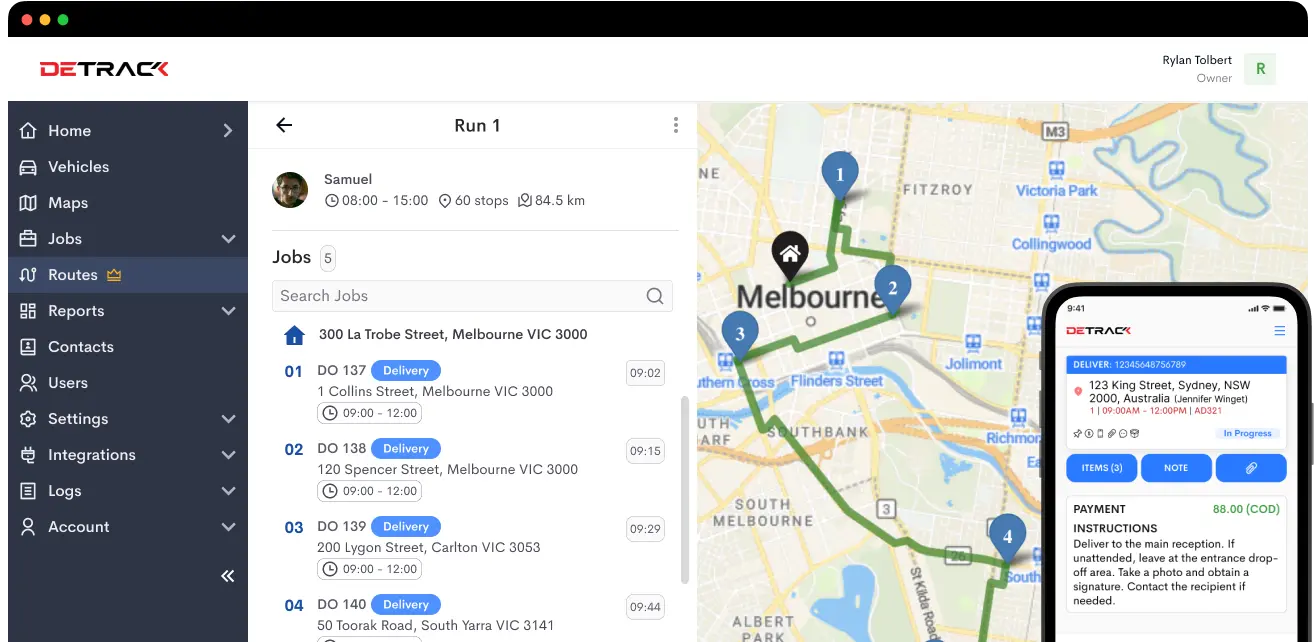Are you searching for a business venture that offers a reliable income stream, taps into the ever-expanding demand for delivery services, and grants you the freedom of entrepreneurship?
Buying a route might be the opportunity you’ve been looking for.
In this comprehensive guide, we’ll explore the world of delivery routes, shedding light on what it means to purchase one and how to turn it into a thriving business.
What Does it Mean to Buy a Delivery Route?
When buying a route, you acquire an established system for delivering goods or services to specific locations. These routes are meticulously planned to ensure efficient and timely deliveries.
Delivery routes can encompass various delivery types, such as packages, parcels, newspapers, mail, or even food.
A delivery route typically consists of a defined geographic area with a predetermined list of stops or delivery points. These could be residences, businesses, or any location where the delivery service is needed.
In addition to the customer base, buying a route often includes the rights to use vehicles, equipment, and any associated contracts or agreements. The exact details of what is included can vary, so reviewing the purchase terms thoroughly is crucial.
Why Consider Buying a Route?
Steady Income Stream
The allure of a delivery route lies in the promise of a consistent and reliable income stream. This financial stability is achieved through contracts or franchise agreements, which guarantee a predetermined number of deliveries and a steady source of revenue.
This predictability can be particularly appealing for individuals who seek a dependable income to support their livelihood. A delivery route can offer both, whether you’re looking for financial security or an additional income source.
Growing Demand for Delivery Services
The delivery services industry is thriving and shows no signs of slowing down. This growth is primarily driven by the surge in e-commerce and the changing preferences of consumers. When you buy a route, you are placed amid this bustling market.
The demand for efficient and reliable delivery services is especially prominent in urban areas, where customers value the convenience of delivering their goods to their doorstep. As an owner of a delivery route, you can tap into this demand and build a loyal customer base.
Opportunity for Entrepreneurship
Owning a delivery route is not just a job; it’s a genuine entrepreneurial opportunity. It gives you the autonomy to manage your route as your business.
This means making crucial decisions about hiring, training, and supervising drivers, crafting efficient delivery schedules, and optimizing the route for maximum cost-effectiveness and customer satisfaction.
Your ability to shape and guide the operations of your delivery route allows for creative strategies to enhance profitability and customer service. Buying a delivery route grants you the freedom and authority to drive your success, echoing the very essence of entrepreneurship.
Operational Control and Scalability
As an owner of a delivery route, you are in the driver’s seat when it comes to operations. This control lets you make vital decisions concerning route management, vehicle maintenance, and staff management.
You can continuously refine your strategies to improve efficiency and the quality of customer service. Beyond that, there’s the exciting prospect of scalability. You can contemplate expanding your business by acquiring additional routes, exploring new territories, or diversifying your services.
The growth potential can transform your venture from a stable income source into a thriving, multifaceted business.

Types of Delivery Routes
When buying a route, here are the types that you should be aware of:
Independent Contractor Routes
Independent contractor routes are typically characterized by the driver or courier operating as an independent business owner. They may contract with a delivery service company or distributor to provide delivery services.
These routes often offer flexibility, as the contractor can set their schedule and work for multiple clients, making it an appealing option for those seeking autonomy in their delivery business.
Bread and Snack Routes
Bread and snack routes deliver baked goods and snacks to retail stores, cafes, restaurants, and other establishments.
The route owner typically services a specific geographical area and maintains relationships with clients who rely on a regular supply of fresh products. This type of route often guarantees a steady demand for staple food items.
Protected Territory Routes
Protected territory routes are typically exclusive arrangements between a distributor or manufacturer and the route owner. The owner is granted exclusive rights to deliver specific products within a designated geographic area.
These routes offer security and market control, as competitors cannot encroach on the designated territory.
Newspaper and Magazine Routes
Newspaper and magazine routes involve delivering print publications to subscribers’ homes or businesses.
Route owners are responsible for distributing newspapers, magazines, and related materials, often during the early morning hours. These routes can offer a regular income stream and may involve close relationships with local publishers.
Beverage and Bottled Water Routes
Beverage and bottled water routes encompass the delivery of beverages to retailers, convenience stores, and offices, including bottled water, soft drinks, and other non-alcoholic beverages.
These routes often involve managing heavy and perishable products, requiring proper storage and transportation.
Laundry and Dry Cleaning Routes
Laundry and dry cleaning routes focus on picking up and delivering clothing and textiles to and from dry cleaning facilities and laundromats.
The route owner often services individual customers and commercial clients, including hotels, restaurants, and healthcare facilities.
These routes offer opportunities for building long-term client relationships and providing a necessary service to the community.
Where Can You Buy a Delivery Route?
If you’re buying a route, you have several options for finding and purchasing the right opportunity. Here are some common sources and methods for buying delivery routes:
Online Marketplaces and Platforms
Online marketplaces and platforms are convenient and accessible for searching for available delivery routes. Websites such as BizBuySell, BizQuest, and BusinessesForSale feature extensive listings of businesses for sale, including delivery routes.
These platforms provide detailed route information, including locations, customer bases, financial performance, and asking prices. You can use various search filters to narrow your options and find routes that align with your criteria.
Additionally, online marketplaces often facilitate direct communication with sellers or brokers, making it easier to ask questions, request additional information, and initiate the buying process. The transparency and wide selection of online routes can be a valuable resource for those looking to enter the delivery route business.
Directly from Delivery Companies
Some delivery companies or distributors may have opportunities for individuals to buy their delivery routes. This option is viable if you have a specific company or service you’d like to work with.
These companies may either sell existing routes, especially if they’re expanding or reorganizing their operations, or offer opportunities for individuals to become independent contractors and establish their routes under the company’s umbrella.
To explore this avenue, contact the local offices or franchise locations of the delivery companies you’re interested in. They can provide information about any available routes, requirements for becoming an independent contractor, and the terms and conditions of working with the company.
Networking and Industry Contacts
Building a strong network within the delivery and logistics industry can be a valuable way to discover opportunities that may not be publicly listed.
Attend industry conferences, seminars, and trade association meetings to connect with professionals with insights into available delivery routes. These industry contacts may include retiring route owners looking to sell, business brokers specializing in the field, or company representatives aware of unadvertised opportunities.
Networking allows you to tap into the “hidden” market of available routes and can be a useful resource for finding opportunities that may not be widely known or advertised.
Cultivating relationships with industry professionals can also provide valuable advice and guidance as you navigate buying a route.
Business Brokers and Agents
Business brokers and agents are experts in buying and selling businesses, including delivery routes. They maintain listings of available routes and can assist you in finding a route that aligns with your goals and budget.
Brokers often have industry connections and can leverage their networks to identify suitable opportunities.
Working with a business broker or agent offers several advantages, including their expertise in the negotiation process, assistance with due diligence, and access to a wider range of route listings.
They can also help you navigate the legal and financial aspects of buying a route, ensuring the transaction proceeds smoothly and securely.
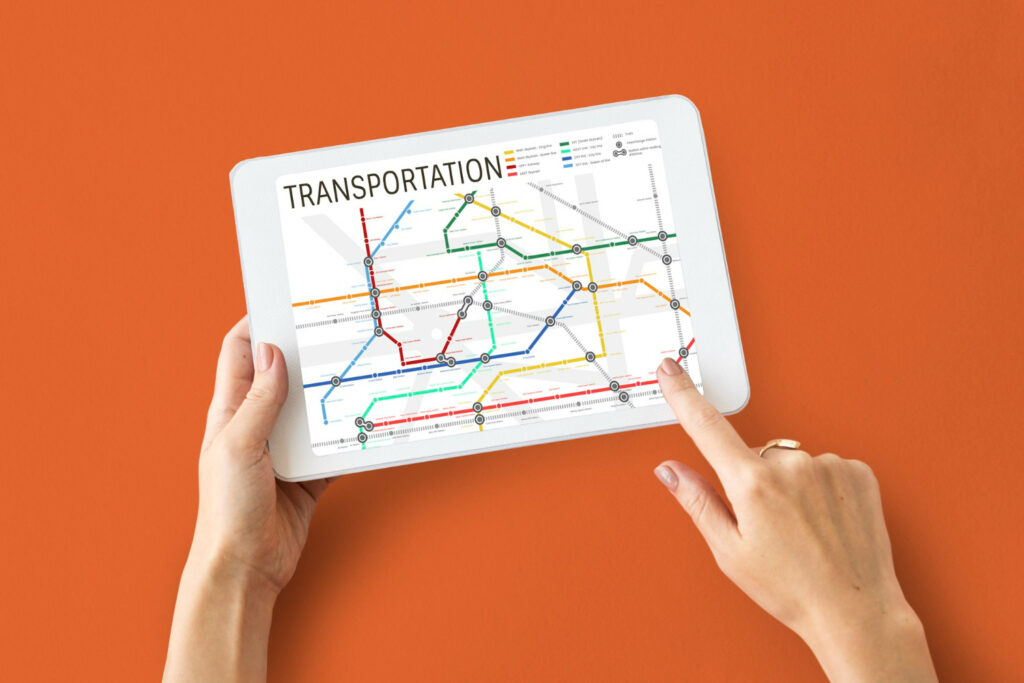
Steps for Buying a Route
Buying a route can be a lucrative business venture, especially if you plan carefully and conduct thorough research. Here are the steps for buying a delivery route:
- Identify Your Niche – Determine the type of delivery route you’re interested in. This could be anything from package delivery to newspaper distribution, so identify your niche and understand the industry.
- Research Route Types – Learn about the different delivery routes available in your chosen niche. Research the market, competition, and demand for the specific route type you’re interested in.
- Set Your Budget – Determine how much you’re willing to invest in buying delivery routes. Your budget should include the purchase price and funds for operational expenses and potential improvements.
- Scout for Opportunities – Look for opportunities to buy delivery routes. You can find listings in classified ads, online marketplaces, or through brokers and business transfer agents.
- Due Diligence – Perform a thorough due diligence process. This involves reviewing the financial records, contracts, and any legal issues associated with the route you’re considering. Verifying the seller’s claims and ensuring no hidden problems is essential.
- Evaluate Territory – Assess the geographic territory covered by the delivery route. Consider population density, demographics, and competition to determine the route’s potential profitability.
- Inspect Vehicles and Equipment – Examine the condition of the vehicles and equipment used for the delivery route. Ensure they are in good working order or budget for necessary repairs or replacements.
- Meet the Seller – Arrange a meeting with the route seller to discuss the transaction. Ask questions, seek clarification, and get to know the seller to establish trust.
- Negotiate Terms – Negotiate the purchase terms, including the sale price, payment schedule, and any contingencies. Be prepared to make a reasonable offer based on your research and due diligence.
- Secure Financing – Explore your options if you require financing to buy the delivery route. This may involve loans, investors, or personal funds. Ensure you have a clear plan for covering your financial needs.
- Complete Legal Formalities – Work with an attorney to draft a purchase agreement that outlines all terms and conditions of the sale. Ensure to include clauses that protect your interests and specify the responsibilities of both parties.
- Transition and Training – Plan a smooth transition from the previous owner to you. Ensure you receive proper training and guidance on running the delivery route effectively. This can include learning about the existing customer base, delivery schedules, and special requirements.
Challenges and How to Overcome Them
Managing Financial Risks and Constraints
Buying a route can be a substantial financial commitment, especially if purchasing an established route with vehicles and equipment. Securing the necessary capital can be challenging, especially for small businesses or startups.
To overcome this challenge, it’s essential to explore different financing options. This might include traditional bank loans, Small Business Administration (SBA) loans, or seeking investors.
A solid business plan with detailed financial projections is crucial to attract potential investors or secure loans. Conducting thorough due diligence on the financial health of the route you intend to buy is also essential to ensure the investment is worthwhile.
Navigating Legal and Compliance Issues
The delivery industry is subject to many legal and regulatory requirements, including permits, licenses, and employment and labor laws compliance. These regulations can vary by location and may change over time.
Consulting with legal professionals specializing in transportation and logistics is advisable to navigate these challenges. They can help you understand and adhere to local, state, and federal regulations.
It’s also crucial to conduct due diligence on the existing route to identify any ongoing legal issues or compliance concerns, as these could impact your ability to operate successfully.
Dealing with Operational and Logistical Hurdles
Operating a delivery route requires careful management of day-to-day operations, including vehicle maintenance, driver management, and efficient route planning. Challenges can arise from vehicle breakdowns, driver scheduling, and fuel costs.
To overcome these issues, investing in route planning and optimization software can help increase efficiency and reduce operational costs. Developing clear standard operating procedures (SOPs) for drivers and support staff streamlines operations and minimizes errors.
Regular vehicle maintenance and upgrades can prevent breakdowns and delivery delays, crucial for maintaining a good reputation with customers.
Addressing Market Competition and Customer Expectations
The delivery industry is highly competitive, with customer expectations for speed and reliability continually rising. To overcome these challenges, conducting thorough market research is essential.
Identify gaps or underserved niches in the delivery market and tailor your services accordingly. Investing in customer relationship management (CRM) systems can help provide excellent customer service and build brand loyalty.
It’s important to continuously innovate and adapt to changing customer preferences to stay competitive, such as offering same-day or next-day delivery options.
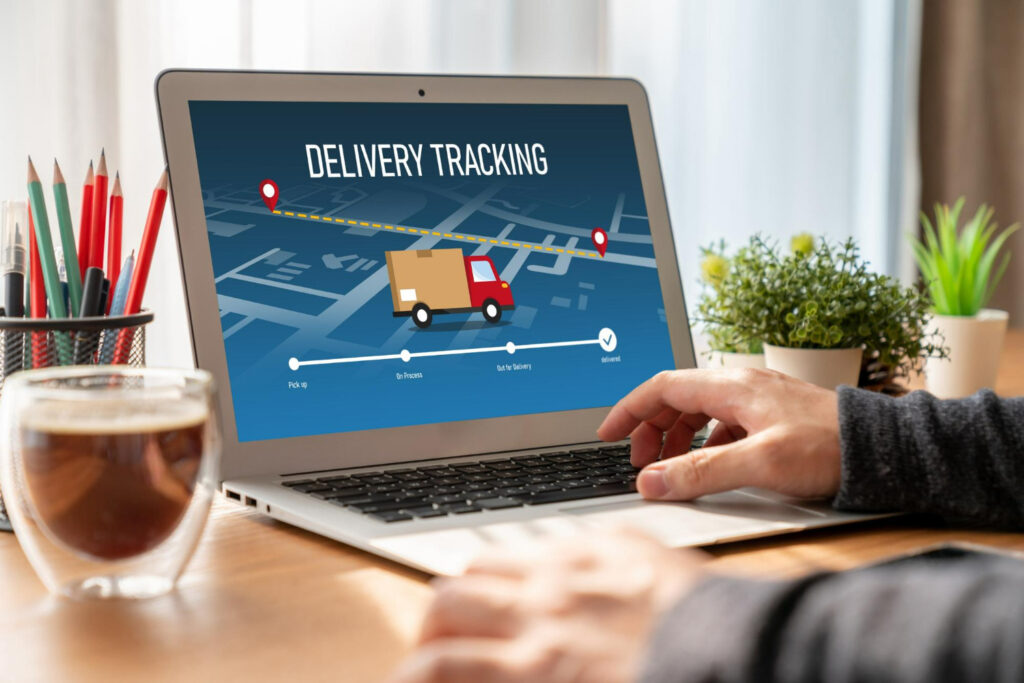
Make the Shift: Buying a Route for Sustainable Success
In conclusion, shifting towards buying a route for sustainable success is not just a strategic choice; it’s a necessity in today’s evolving business landscape. As we navigate financial challenges, legal complexities, operational hurdles, and fierce market competition, one tool that can play a pivotal role in ensuring a sustainable and efficient delivery route is Detrack.
Detrack, with its innovative delivery management software, offers a comprehensive solution for route planning, tracking, and customer communication.
By embracing eco-friendly practices and staying at the forefront of technological innovations, delivery route businesses can meet rising customer expectations and contribute to a greener, more sustainable future.
The road to success may be challenging, but it’s paved with opportunities for those willing to embrace change and sustainable practices. Make the shift, invest in sustainability, and secure a prosperous future for your delivery route business.
Frequently Asked Questions About Buying a Route
What does it mean to own a bread route?
Owning a bread route means having the exclusive rights to deliver a particular brand of bread and related products within a designated area, typically to stores and restaurants.
Why are so many FedEx Routes for sale?
FedEx routes are frequently sold for various reasons, including owners seeking profit, personal circumstances like retirement or relocation, and the competitive nature of the logistics industry.
Do I Need to Have Prior Logistics Experience to Become a Route Owner?
Prior logistics experience is helpful but not always necessary. Many route opportunities offer training and support to help individuals without experience succeed.
Do I Need a Permit or License to Operate as a Route Owner?
The need for permits or licenses depends on the industry and the products you’re delivering. To avoid legal issues, research and ensure compliance with local, state, and federal regulations related to your specific route type.

